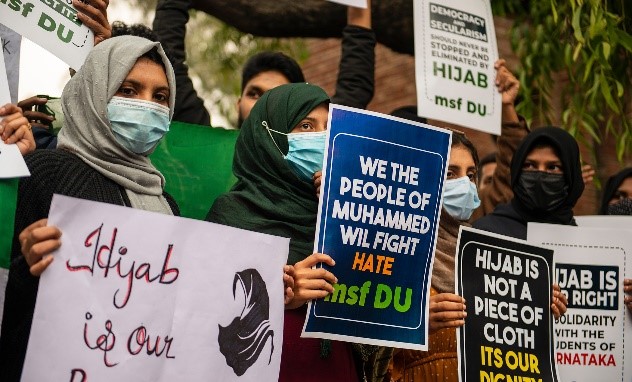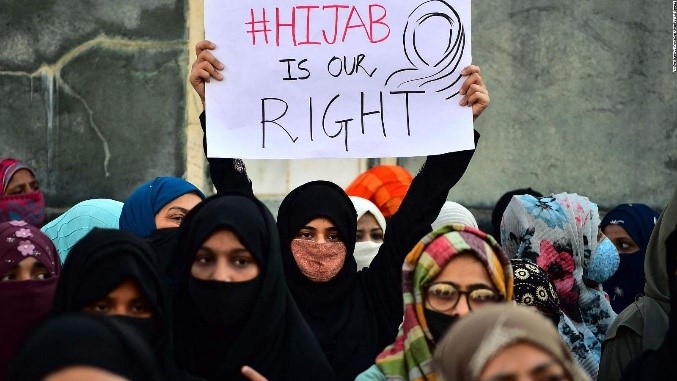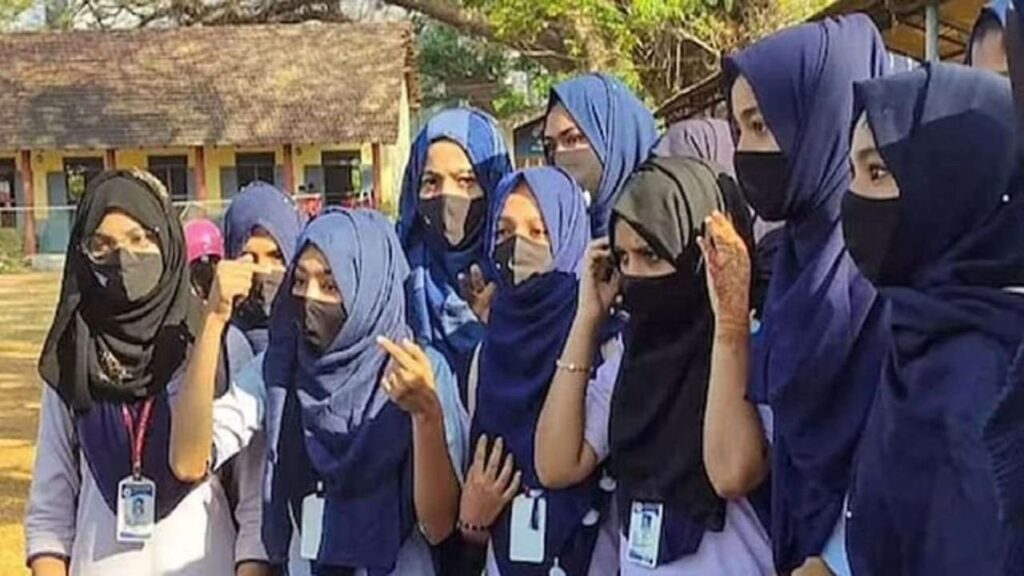Hijab Issue: Is it A Cultural or Religious Practice

India, a land of diverse cultures and religions entails several kinds of customs and rules as per the guidance of different cultures. Quite lately, a controversy arose in Karnataka, a state in South India where six Muslim girls were denied access to college wearing hijab. It created a huge row that made people aware of something that they had never paid attention to. Why have the Muslim girls who have got an ‘awakening’ and a true sense of following their religious practices recently? It makes us think deeply as to how and why they have got up to get their rights.

How the matter arose
The matter arose when six Muslim girls wearing hijab were denied entry to college at Udupi in Karnataka. According to the college administration, students need to follow the proper dress code. At this, students from other colleges started protesting and some students started wearing saffron-colored and blue-colored shawls which were the representation of the specific communities. It created noticeable unrest in the state. The State government followed the Karnataka Education Act 1983, section 133(2), and released an order for students to abide by the rules and dress up in uniforms prescribed. It referred 2013 directive that the need of wearing a hijab is not a religious practice. The action taken by the government did not work and there had been agitation, protests, and demonstrations against this decision. Later a petition was floated in the High court.
The High Court verdict on the issue
The Karnataka High court dismissed the petitions on the government order banning the hijab in schools. The three-member bench led by Chief Justice Ritu Raj Awasthi stated that wearing a hijab does not come under essential religious practice in Islam and students cannot object to reasonable restrictions in the form of uniforms. The High court order came as a big blow to these protesters. After the high Court order, thousands of students came to the streets, demonstrations and protests were held across the state and spread to different parts of the country. This unrest made all institutions remain closed.

Supreme court’s stand
The Supreme Court refused to give an urgent hearing on the pleas challenging the Karnataka high court verdict, meanwhile, students have decided to wait till the supreme court gives a verdict on the issue. Political parties and leaders have different opinions regarding this issue. Some of them disagreed with the high court’s decision. People showed their opinions on social media, Facebook, Twitter, etc. There are no restrictions for women on wearing hijab but they should abide by the institutional discipline. As Karnataka Advocate General Prabhuling Navadgi told the High court that there is no prohibition in India on wearing hijab under Article 19(1) but there are reasonable restrictions under 19(2). Rule 11 (on dress code) places a reasonable restriction inside the institutions. It is subject to institutional discipline. It is to be noted that it was a girls’ college where the issue started and many Muslim students were not wearing hijab earlier as it has been a cultural practice, not a religious one.